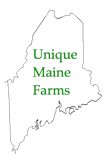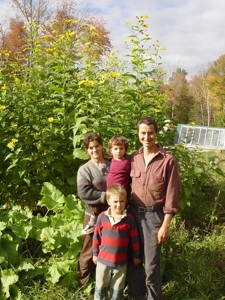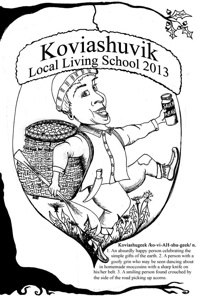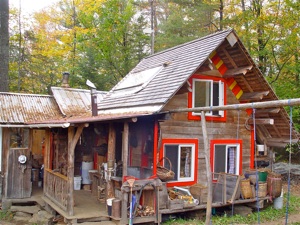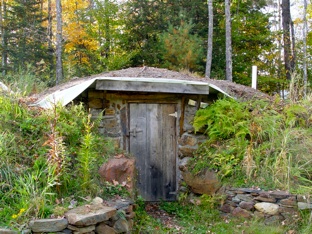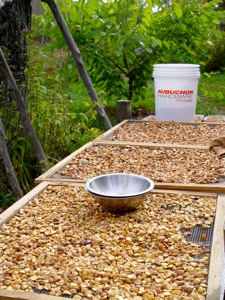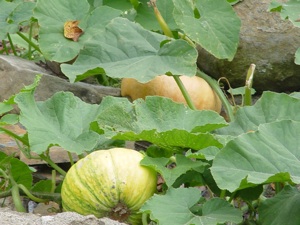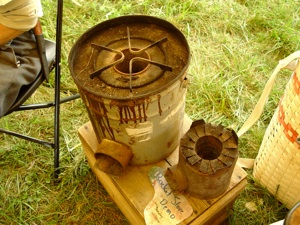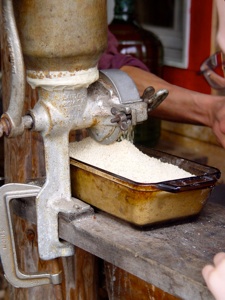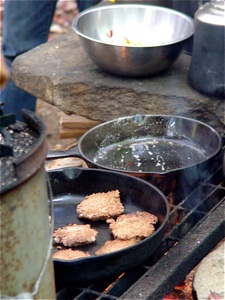Name: Koviashuvik Local Living School
Address: Chris and Ashirah Knapp
Koviashuvik Local Living School
P.O. Box 383
Temple, Maine 04984
Phone: 207-778-0318
Email: info@koviashuvik.com
Website: www.koviashuvik.com
Facebook: Koviashuvik Facebook Page
Products and Services:
-canoe paddle making workshop
-school programs
-homeschool class series
-apprenticeship program
-wild greens workshop
-hand tool sharpening workshop
-homemade spoon workshop
-fermentation workshop
-fruit leather workshop
-humanure 101 workshop
-packbasket weaving weekend
-processing acorns into flour workshop
-family sustainability stays
-rocket stove workshop
-introduction to stone work class
-hand-split shingles workshop
What Makes Koviashuvik Local Living School
Unique?
If an individual were interested in exploring the feasibility of homesteading as a realistic way of living in the contemporary world in Maine, two experts to contact would be Chris and Ashirah Knapp of Koviashuvik Local Living School. They have been successfully homesteading on their one-hundred-acre farm in Temple, Maine, for several years now. Their proficiency in teaching so many traditional folk arts and indigeneous crafts is truly impressive.
Thanks to the willingness of Master Maine Guide Ray Reitze at Earthways School of Wilderness Living, Chris and Ashirah became well-versed in ways of living in harmony with nature. Ray had learned these ways from a Micmac elder. Chris and Ashirah also gained a great deal of experience from their affiliation with Kroka Expeditions of New Hampshire, where they developed and led children’s programs for eleven years. They both were instrumental in the Vermont Semester program for high school students at Kroka. Their role as parents of two young children and the fact that they are both licensed Maine Guides contribute greatly to their qualifications for teaching children about the outdoors.
When Chris and Ashirah decided to open their own school in Temple, they named it “Koviashuvik” after an Inuit word which means “a time and place of joy in the present moment.” It is a very fitting choice for a name because the Knapps truly have displayed the ability of finding joy in all aspects of living with nature. Anyone who has attended one of their acorn workshops and listened to Chris break out spontaneously in a song honoring the oak tree has witnessed the joy that is an integral part of the Knapp’s farm and their view of living.
Singing is an important part of each day. Chris and Ashirah Knapp and their children sing a song at each meal in the tiny house that they built by hand from materials found on their land. Their source of electricity are the solar panels. Almost all of their food comes from their gardens, the fields, their fruit and nut trees, or the woods. They preserve much of their food and store it in their stone root cellar. As in times long ago, they harvest ice from their pond for their ice house. They are experts in the process of fermentation. Their source of water is rainwater and a spring.
The Knapps have a deep respect for all aspects of the natural world and a particularly strong appreciation for the oak tree. This tree is the source of the acorns that they use to make flour. Their acorn flour is the base for their baked goods. The Knapps have conducted many workshops that teach how to process acorns into flour. They go through the steps of harvesting, drying, shelling, leaching, and grinding acorns. Participants have the opportunity to use a hand-powered flour mill and acorn sheller and help to make acorn treats.
At the Koviashuvik Local Living School there is a wonderful outdoor kitchen under a large canopy. It is equipped with a rocket stove which is a small wood-burning stove that gives off a very large amount of heat with little wood. Another food-related activity that takes place in the outdoor kitchen is the Knapps Fermentation Fiesta class. Participants have the opportunity to learn all about the lacto-fermentation method. Kimchi, sauerkraut, pickles, and dilly beans are all able to be made quite simply because the method does not require canning or the use of vinegar.
Many families have chosen to spend time at Koviashuvik by signing up for one of the Family Sustainability Stays. These families are able to participate in all aspects of the homesteading way of life. A large canvas-wall tent with a wooden floor is the sleeping arrangement. There is access to the outdoor kitchen and composting toilet. They can explore the farm property with its woodlands, ponds, and streams, and enjoy experiencing some of the traditional folk arts firsthand. Many long-lasting memories are formed from preparing the meals together over an open fire and taking responsibility for all the chores that are involved by living a simple life that is deeply associated with the natural world.
Apprentices who sign up to work at the farm have the opportunity to learn about all aspects of homesteading. They are exposed to organic gardening and permaculture methods, sustainable technologies, and primitive skills. They live in the earth lodge. It is a beautiful earth-bermed building made from spruce poles, birch bark, and sphagnum moss. When you enter the lodge the smell of the evergreen needles that serve as bedding is very fragrant and extremely invigorating. The apprentices who live in the lodge agree to help with various projects on the farm. In return, they are able to attend any of the classes that are offered on the farm during their stay.
Some of the wood-related classes that have been offered at the Koviashuvik Local Living School have included canoe paddle making and wooden spoon making, cooking with wood, and making hand-split shingles. There have been workshops in hand tool sharpening and basketry. The gathering of wild greens and wild foods has been shared. Apprentices have learned all about cooking with acorn flour, fermentation, and making fruit leather. The Knapps are skilled in Native crafts and have taught apprentices and visitors about transforming hides into leather and making moccasins.
There are several energy-saving technologies in place at the Knapp homestead and farm. Composting toilets have been built. Their water is heated by solar power. It is quite interesting to observe the innovative shower setup that they designed in their earth-bermed greenhouse. Attached to their solar greenhouse is a gigantic solar food dehydrator. The Knapps are presently busy building a year-round classroom space. They are experienced in building with stone and they harvest all their wood from their property. It is fortunate that they own a portable saw mill that is situated on their land.
When individuals visit the Knapp’s farm it is quite amazing to observe all the work that they have accomplished in a relatively short period of time. Five acres of the forested land have been opened up by Chris and Ashirah by hand. They have planted extensive gardens and a fruit and nut orchard. In addition to building their small house, they have constructed an ice house, earth-bermed greenhouse, earthen lodge, outdoor kitchen, stone root cellar, and a workshop.
If one takes the time to reflect on how Chris and Ashirah were able to master so many traditional homesteading skills and establish the Koviashuvik Local Living School, it becomes apparent that many factors contributed to their success. Obviously they both share a strong commitment to respecting the land and connecting with the outdoors and the local community. They have exhibited a desire to live simply.
How fortunate that a Micmac elder was willing to teach Ray Reitze so many traditional skills and that Ray was agreeable to share his knowledge with the Knapps. A beautiful path of sharing and learning has been formed. Chris and Ashirah have enthusiastically agreed to share what they have learned from others and from their own experiences. Many schools, homeschool groups, families, adults and children are benefitting from their way of life and their outreach programs. As a result of their efforts, many individuals have found themselves much more in tune with a simpler and slower-paced way of living. Closer bonds with the natural world have been formed. Chris and Ashirah have successfully shared the concept of “koviashuvik” at their farm. Like the Knapps, many individuals have been introduced to the idea of finding joy in a simple action in the present moment.


